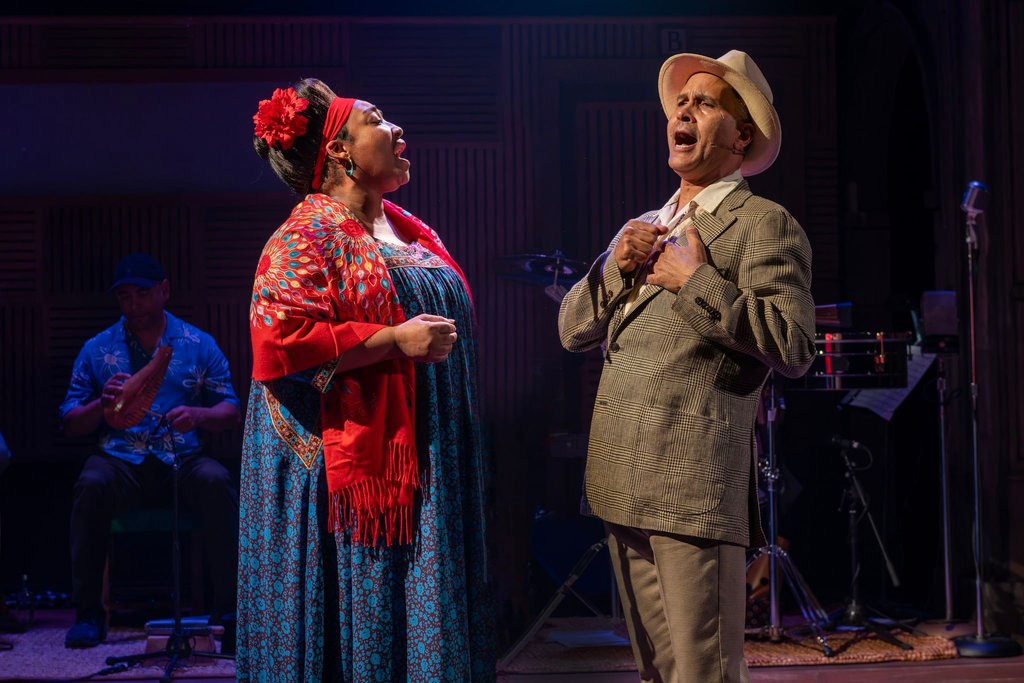
A musical brings to the stage the real story of those retired musicians who had a long career in Cuba but were mostly unknown outside the island.
HAVANA TIMES – It’s a story that began twenty-seven years ago. In an old building in Old Havana lived Ibrahim Ferrer, a musician who gained his reputation in the 1940s and 1950s but was already retired by then. He was 70 years old, making a living as a shoe shiner and magazine seller. One afternoon in March 1996, Juan de Marcos Gonzalez knocked on his door asking Ferrer to come with him to a recording studio. And off they went.
In the EGREM studio, Ferrer met old acquaintances, several of whom were part of the cream of traditional Cuban music: singer and clarinetist Compay Segundo; Grammy-winning singer Omara Portuondo; renowned pianist Ruben Gonzalez; and Eliades Ochoa, who, at 49, was the youngest in the group.
The reunion of musicians coincided that day with that of renowned blues guitarist Ry Cooder who was visiting the studio. Cooder had played with famous artists and groups like the Rolling Stones, Van Morrison, and Bob Dylan. Upon hearing these veterans, Cooder was captivated. He and Nick Gold, head of the British music label World Circuit, had long been interested in a project by musician Juan de Marcos Gonzalez. It involved bringing together old legends of Cuban music under the name Afro-Cuban All Stars to revive a long-forgotten style: the Cuban son, which, after the revolution’s triumph in 1959, had been considered “music for elders.”
On that occasion, Ferrer performed “Candela,” a song very popular in its time. Cooder asked him to record the song with him and proposed producing an album with all these veteran figures. The project was dubbed the Buena Vista Social Club, the same name as one of the old clubs closed by the Castro regime. A few days later, recording sessions for the album began.
Despite being entirely in Spanish, Buena Vista Social Club became an essential album in both Latin and non-Latin households. Eight million copies were sold worldwide, and it won the Grammy for Best Tropical Latin Performance. It was released the same year as Radiohead’s “OK Computer,” Janet Jackson’s “The Velvet Rope,” and Bob Dylan’s “Time Out of Mind.” Nevertheless, Buena Vista Social Club was the least likely musical phenomenon of 1997. The documentary filmed by the German filmmaker Win Wenders, which captured excerpts from concerts, recording sessions, interviews with musicians, and numerous scenes shot in Havana, contributed to its success.
The opportunity to take a second look at their past
Now, the real story has reached the stage through the musical “Buena Vista Social Club TM.” The scriptwriter is Marco Ramirez, a Cuban-American known for “The Royale,” a play about the history of racism in the United States produced by the Lincoln Center. With this work, he won the Drama Desk and Outer Critics Circle awards. Ramírez has also been nominated for an Emmy Award, and his television work includes “Orange is the New Black” and “La Maquina,” starring Gael García Bernal and Diego Luna.
The staging was entrusted to Kenyan-American Saheem Ali, associate artistic director of the Public Theater, one of Off-Broadway’s most important venues. He received the 2023


